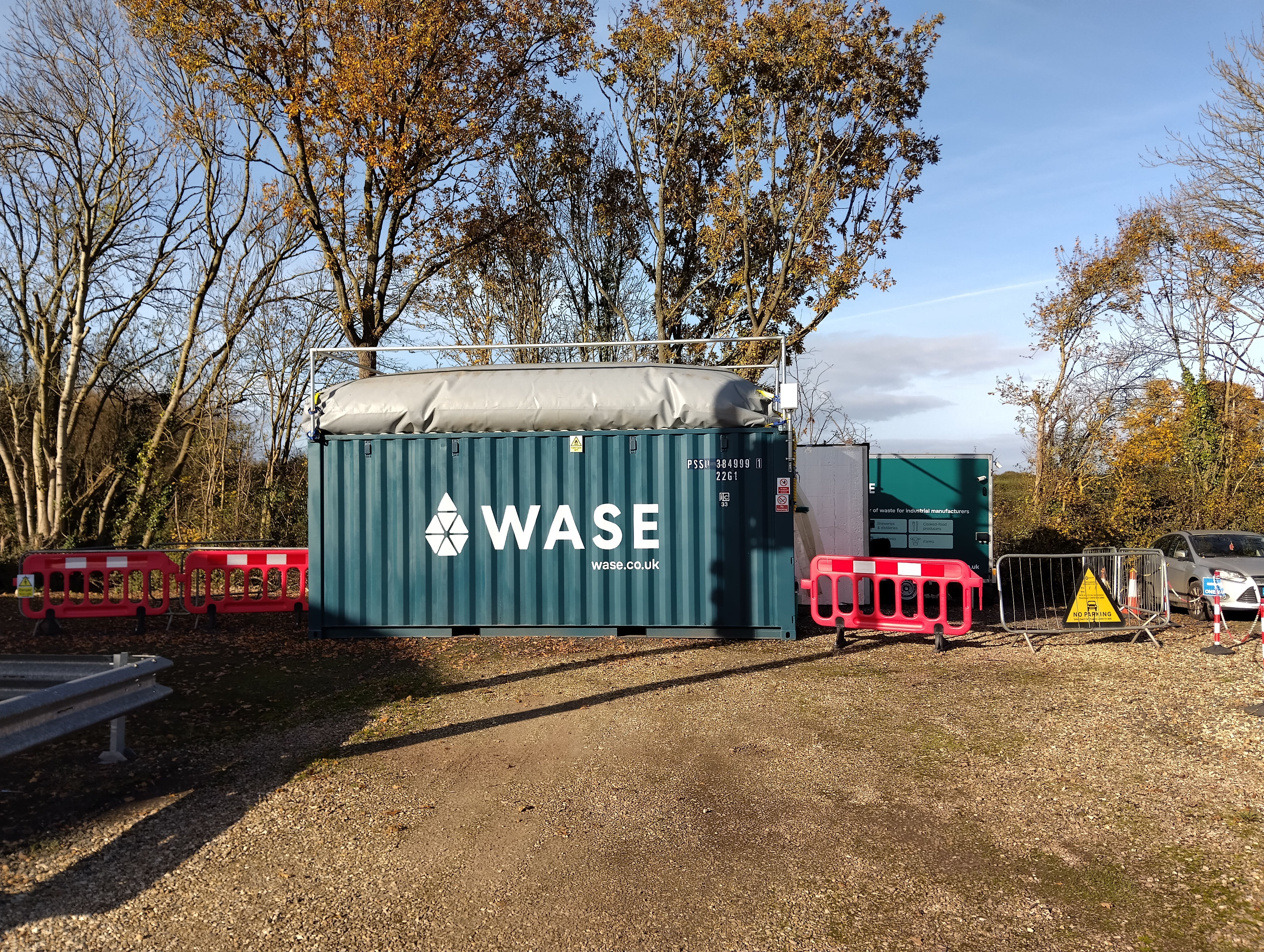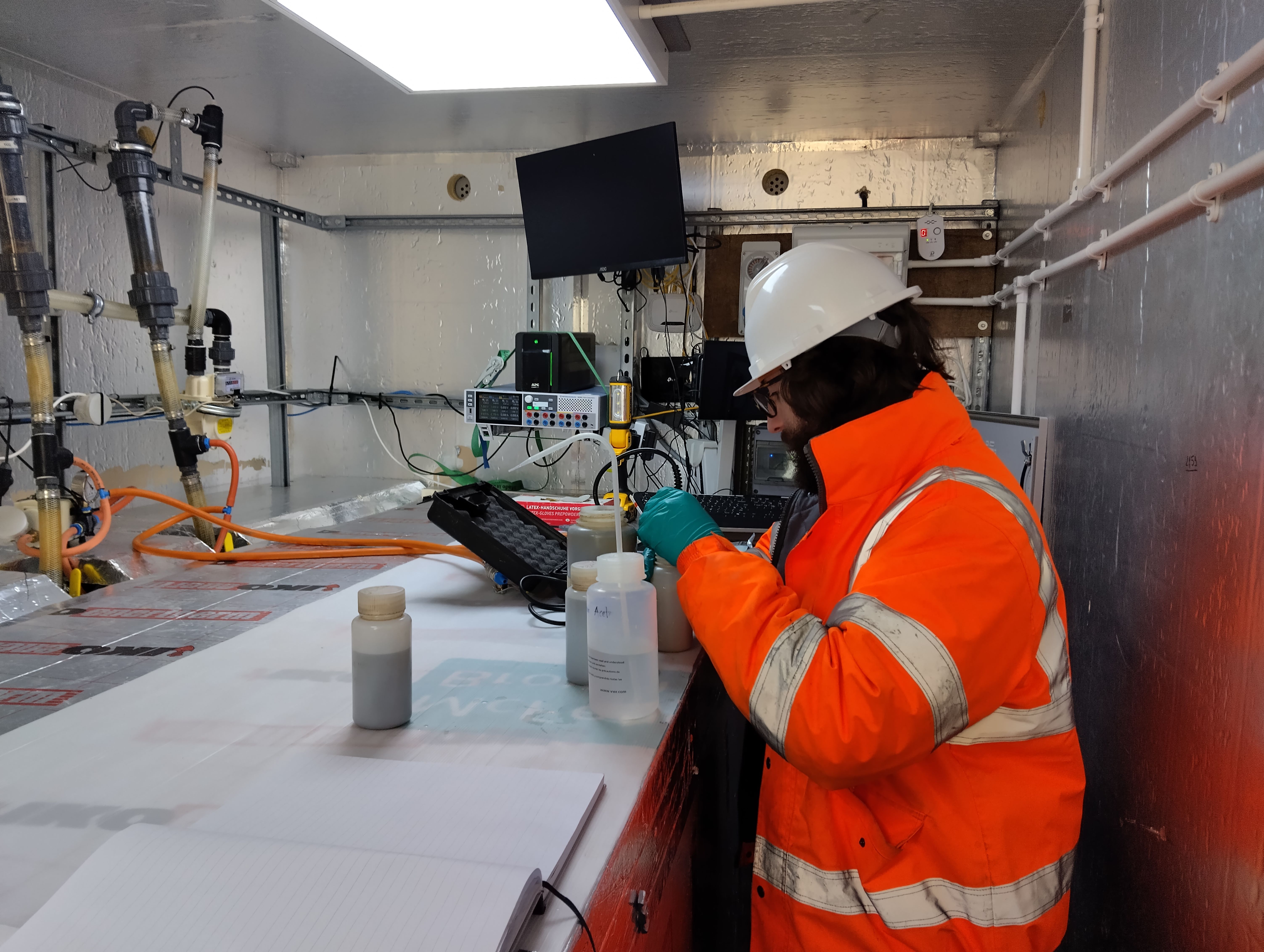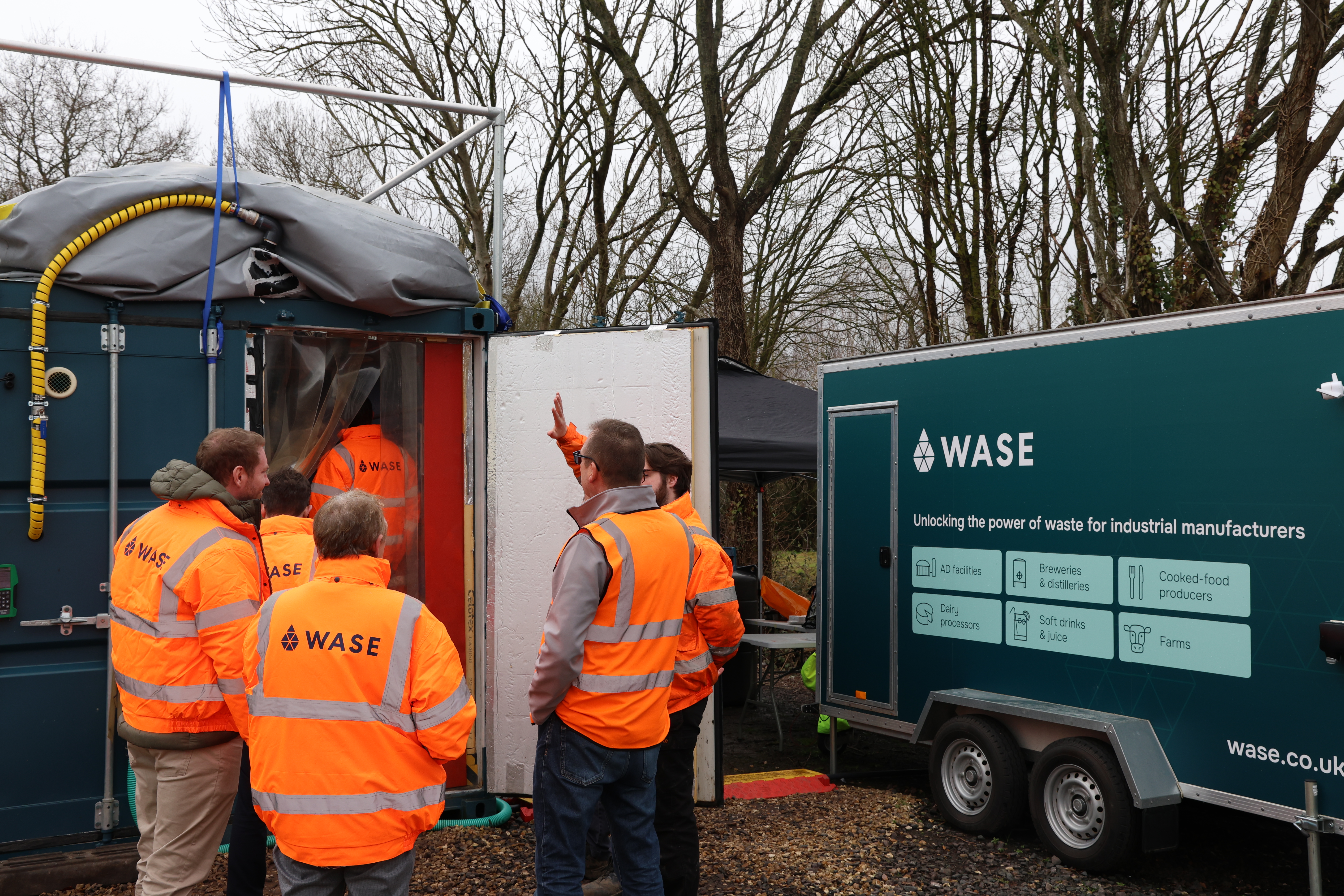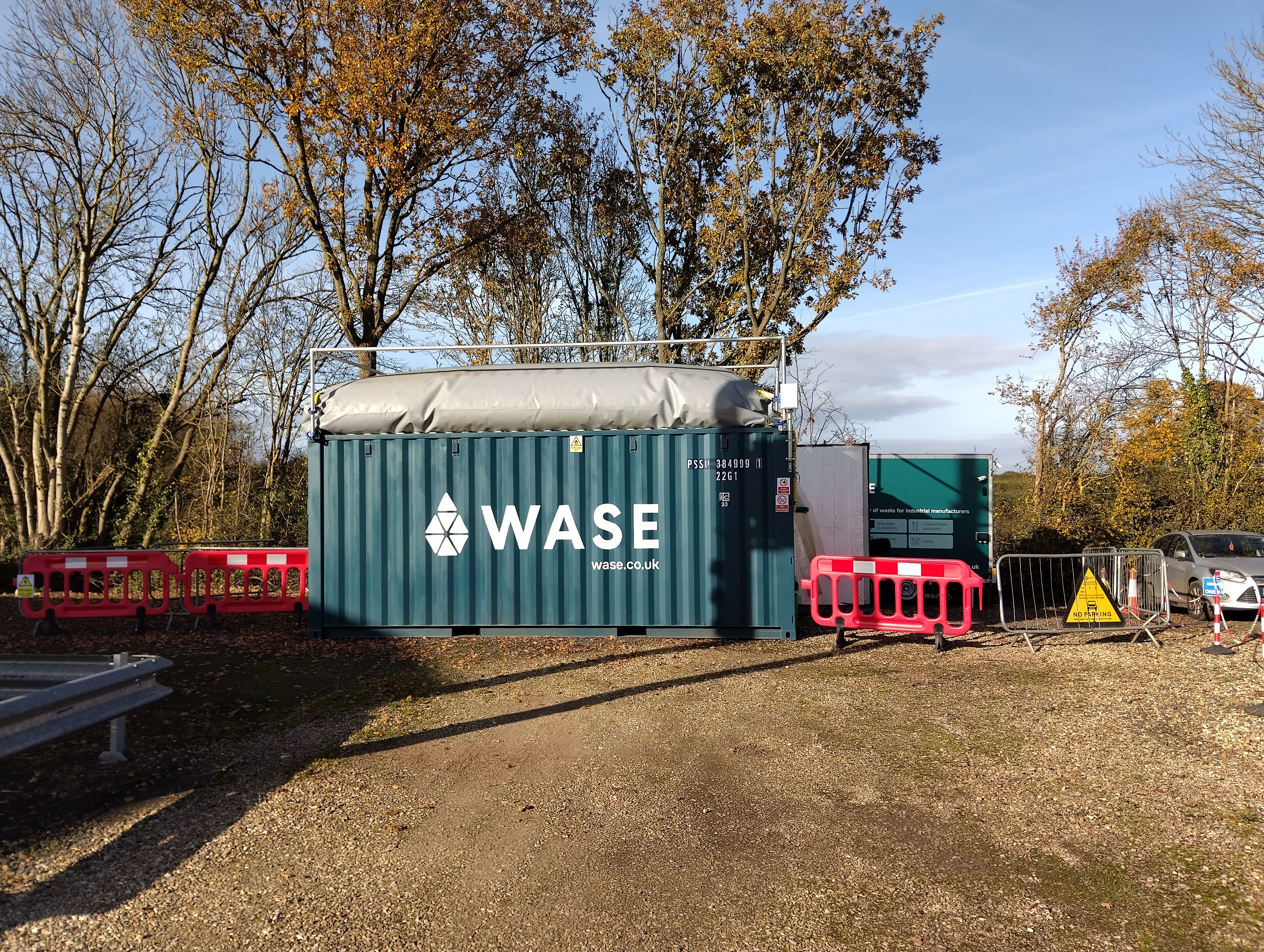MiniWASE is a compact, modular wastewater treatment system designed to demonstrate WASE’s cutting-edge electromethanogenesis technology at a pilot scale. It efficiently treats organic waste streams while generating renewable energy in the form of biogas. With real-time monitoring and adaptive processing capabilities, WASE provides a scalable solution for businesses looking to optimise their waste management, reduce environmental impact, and explore decentralised wastewater treatment.
How big is miniWASE?
Housed within a 20ft shipping container, the miniWASE pilot system includes four 1m³ reactors. This configuration allows for flexible treatment testing in both series and parallel, enabling process optimisation and improved efficiency.

What can miniWASE do?
The miniWASE pilot system offers a range of benefits:
- Effective Wastewater Treatment: It efficiently treats high organic load waste streams, ensuring significant COD (Chemical Oxygen Demand) removal.
- Energy Recovery: The system generates high-quality biogas, which can be utilised for energy recovery.
- Reduced By-Product Waste: Compared to traditional treatment methods, the miniWASE reduces the volume of residual waste.
- Real-Time Optimisation: The system uses intelligent biosensing technology to optimise performance in real time.
- Improved Effluent Quality: By enhancing wastewater treatment, the system helps meet environmental standards and discharge guidelines.
What are the outputs and deliverables?
The miniWASE pilot system provides:
- A comprehensive evaluation of treated effluent, ensuring it meets discharge regulations.
- Detailed performance data, helping businesses optimise their wastewater treatment processes.
- Insights on scaling up to a full-sized system for improved efficiency and sustainability.
How long is the trial duration?
The standard trial period is a minimum of 3 months, but it can be extended up to 6-12 months based on project requirements and data collection needs.
What are the limitations?
While the miniWASE pilot system is highly effective, its performance is influenced by the composition of the site’s waste stream. The system operates best with high-strength organic wastewater, with total solids content below 10%. If waste solids exceed this level, additional water may be required for effective processing. Significant fluctuations in waste strength and composition will be managed by WASE operatives to maintain stability.
Who operates the system?
The WASE team handles all aspects of setup, monitoring, operation, and maintenance, ensuring optimal system performance throughout the trial.

What are the cost considerations?
The cost of running the miniWASE pilot system varies based on duration and location. A 3-month trial typically ranges from £25,000 to £50,000, with longer trials or additional requirements potentially impacting overall pricing.
What does the customer need to provide?
To host the miniWASE pilot system, customers must provide:
- A flat, level location for the 20ft system and mobile laboratory.
- A power supply (32A, single phase).
- A wastewater source, either through access to an existing balancing tank or the provision of IBCs of wastewater.
- Access to kitchen and toilet facilities for WASE operatives.
What happens to the treated wastewater?
Treated wastewater is managed according to the site’s existing processes, whether that be discharge to drain, collection in a balancing tank, removal by a haulier, or further treatment in the site’s wastewater treatment plant
What happens to the biogas?
The biogas generated is collected in a gas bag positioned on top of the miniWASE reactor. Periodically, this gas is safely flared by WASE operatives – imagine a controlled gas stove flame. In some cases, we even put it to good use with a biogas-powered BBQ!

Is the System Noisy or Smelly?
A common concern is whether the miniWASE system produces noise or odours. The answer is no. The system operates quietly and without unpleasant smells, ensuring minimal disruption to site operations.
Why Choose the miniWASE Pilot System?
The miniWASE pilot system provides businesses with a unique opportunity to test advanced wastewater treatment technology, optimise resource recovery, and improve sustainability practices. With real-time monitoring, efficient treatment capabilities, and the ability to generate useful by-products, it is an invaluable tool for companies aiming to enhance their environmental performance.
Interested in learning more about how miniWASE can support your sustainability goals? Get in touch with our team today!

